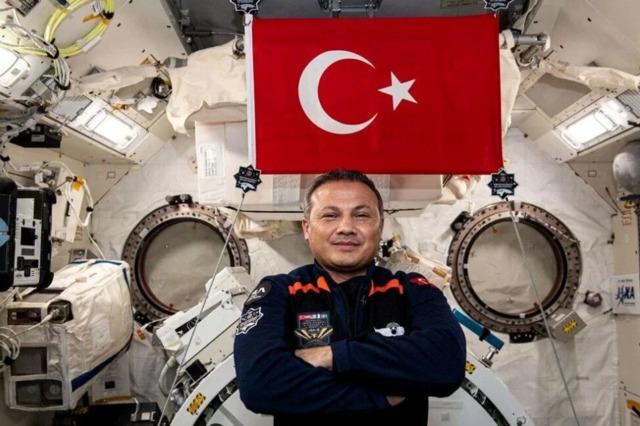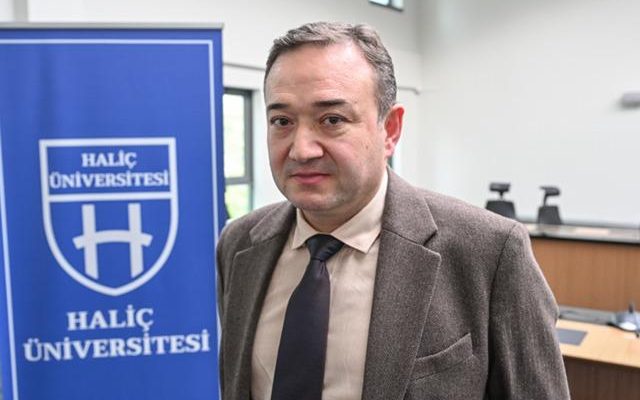The director of the VOKALKORD project is Prof from Haliç University. Dr. Gökhan Aydemir said that VOKALKORD is a mobile application to detect lung and cardiovascular diseases that may be caused by low gravity.
TURKEY’S FIRST ASTRONAUUT ALPER GEZERAVCI STARTED THE DAY WITH NEW EXPERIMENTS
Stating that they developed VOKALKORD with a team of 12 people, including artificial intelligence experts, Aydemir said, “In the first stage, we record spirometric data by measuring only decibel differences, working on the basis of deep breathing, where lung capacity and compulsory vital capacity are calculated. In the second stage.” “, cough and phonation. Current lung and cardiovascular health are evaluated by measuring the sound frequencies and vibration that occur in these two phases.” he said.
Aydemir noted that they developed VOKALKORD during the Covid-19 epidemic and stated that they uploaded patients’ cough and phonation data to artificial intelligence systems during the epidemic.
“WE HAVE PASSED THROUGH VERY DIFFICULT STAGES WITH THE VOKALKORD PROJECT”
Prof. Dr. Reminding that they heard the call of the Turkish Space Agency in 2021, Gökhan Aydemir continued his words as follows:
“Among approximately 40 universities, Haliç University also went through very difficult stages, believing that it would contribute with the VOKALKORD project. For us, the most difficult phase was NASA’s. Because it has a medical device, scientific support, publications and publication phases. Apart from this, we participated in NASA’s own trainings After evaluating all the stages such as how to send a material to space and how NASA can benefit from this mobile application in future space travels, our experiment was approved by NASA on September 23, 2023. Before this, we had training with Alper Gezeravcı. Since Gezeravcı is an engineer and a pilot, he knows the application very well. “He implemented it in some way and contributed to its development.”
“AFTER GEZERAVCI, THE ASTRONAUTS ARE INTENDING TO USE OUR APPLICATION TOO”
Gökhan Aydemir stated that they carried out earth experiments, one of which was carried out at Haliç University, and that the other experiment was carried out in the USA on January 9.
Stating that they recorded Gezeravcı’s cough and phonations with voice recordings, Aydemir said, “Gezeravcı conducts our experiment in the quiet room on the International Space Station at every sunrise and sunset and records his data. After Gezeravcı returns to earth and the quarantine period is over, until February 26.” “We want to share the results of our experiment and present the application to the public.” he said.
Pointing out that the VOKALKORD experiment was carried out on the tablet on the International Space Station, Aydemir said, “NASA installed the application on the tablet, and many stages were passed regarding the software while installing it. They are planning to use our application on astronauts after Gezeravcı. After explaining the test results and scientific data, the usefulness of the application will be evaluated. ” said.

“RESPIRATORY TRACT SOURCES WILL BE ABLE TO DETECT DISEASES”
The director of the VOKALKORD project is Prof. Dr. Aydemir stated that VOKALKORD will be an application that anyone working in difficult conditions can use and made the following statements:
“In the experimental part of our application, tests will be carried out to evaluate lung physiology. When lung capacity, vital capacity and compulsory vital capacity are detected, detectable disorders will be determined. In addition, phonation, cough and respiratory diseases will be detected. On the other hand, what we call the body’s vital functions; pulse, respiration “Since the number, saturation and ECG can be taken via the electrode, we will be able to direct all kinds of healthcare services with the support of artificial intelligence.”
“WE WILL EVALUATE GEZERAVCI’S EXPERIENCES IN SPACE TOO”
Haliç University Rector Prof. Dr. Nihat İnanç stated that they were happy that the VOKALKORD project supported by the university was among the experiments carried out in space.
Emphasizing that this is just the beginning, İnanç said, “We will also evaluate Gezeravcı’s experiences in space and the information he gained during the experiments he carried out. We will shape our next steps together with Mr. Alper’s experiences in space.” he said. (AA)

